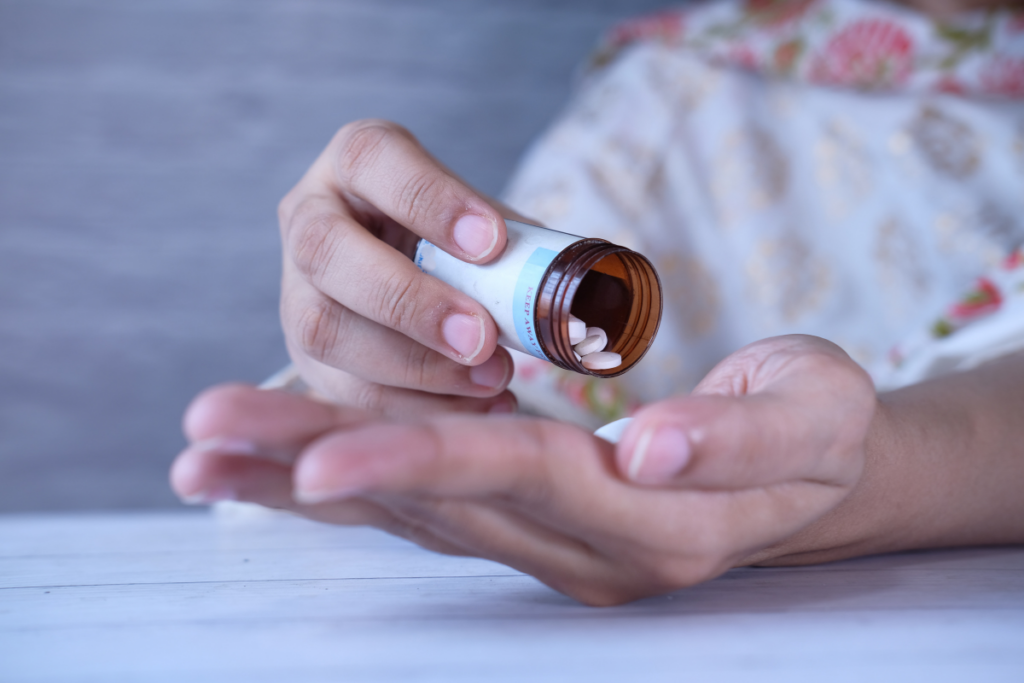You’ve been taking medication for a viral infection, you’ve started to feel much better, and you’re thinking about having a celebratory beer or glass of wine. Is this safe, or will it jeopardize your health? In other words, can you drink alcohol while on antibiotics?
Are you or a loved one struggling with alcohol addiction? Our team is available now to answer your questions, discuss treatment options, and verify your insurance. Take the first step toward healing—call us today to get started.
What Are Antibiotics
Antibiotics are a class of prescription medications that are used to treat or prevent bacterial infections. They may also be referred to as antibacterials or antimicrobials.
Examples of the many conditions that can be treated with antibiotics include:
- Urinary tract infections (UTIs)
- Certain sexually transmitted infections (STIs)
- Bladder infections
- Strep throat
- Meningitis
- Whooping cough
- Pink eye
- Lyme disease
- Cellulitis
Antibiotics may be administered in many ways, including by mouth (in either capsule or liquid form), as a topical ointment, and via injection.
When you take an antibiotic, the drug attacks bacteria on a cellular level, usually by either disrupting their ability to function or preventing them from reproducing.

Can You Drink Alcohol While on Antibiotics?
Can you drink alcohol while on antibiotics? This looks like a simple yes/no question, but it’s a bit more complex than that. Here are two reasons why:
- Alcohol does not diminish the effectiveness of antibiotics, but it combining these two drugs can cause some highly unpleasant and potentially harmful side effects.
- The intensity and danger of these effects can vary depending on which antibiotic you are taking and how much alcohol you consume.
Dangers of Combining Alcohol and Antibiotics
Experts advise that you should never drink alcohol while you are taking antibiotics from the nitroimidazole or tetracycline categories, such as:
- Metronidazole (Flagyl)
- Tinidazole (Tindamax)
- Sulfamethoxazole-Trimethoprim (Bactrim and Septra)
- Linezolid (Zyvox)
- Doxycycline (Doxy-100 and Monodox)
Mixing alcohol with these or similar antibiotics can result in headache, racing heart rate, increased blood pressure, breathing difficulties, extreme abdominal pain, nausea and vomiting. Some of these antibiotics also pose a risk of liver damage and seizures if combined with alcohol.
The Best Way to Stay Safe
Other antibiotics post lower risk of severe adverse effects – but low risk is not the same as no risk. While it may be less dangers to drink moderately while using some antibiotics, it is never completely safe to do so.
And if your effort to limit yourself to one or two drinks isn’t successful, the likelihood of highly unpleasant side effects can increase significantly.
To summarize: Can you drink alcohol while on antibiotics? In some cases it may be possible, but it is rarely advisable. Unless your doctor tells you it’s OK to drink, you should plan to avoid all alcohol for the duration of the time you’re taking an antibiotic.
Also, it’s important to remember that that antibiotics remain in your system for a while after you stop taking them. If you have been using one of the antibiotics that post serious risks if mixed with alcohol, you should wait three days (72 hours) after your last dose before drinking again.

What Happens if You Don’t Stop Drinking?
What happens when you know that you shouldn’t use alcohol while on antibiotics or other prescription medications, but you continue to drink anyway?
There are two answers to this question:
- The first answer involves potential problematic interactions between alcohol and the medication. As addressed in the previous section, if you consume alcohol in combination with certain medications, you put yourself at risk of serious harm.
- The second answer has to do solely with your continued drinking, and if you’re doing it because you want to or because you are compelled to.
If you choose to drink while taking antibiotics, that could indicate skepticism or recklessness. If you cannot stop drinking while completing a course of antibiotics, that could be a sign that you have become addicted to alcohol.
Repeatedly using alcohol in physically hazardous situations is one of the diagnostic criteria for alcohol use disorder (alcoholism). If you have asked if you can drink alcohol while on antibiotics, been told that you shouldn’t, and continue to drink anyway, that would meet this criterion.
As established in the fifth edition of the Diagnostic and Statistical Manual of Mental Disorders (DSM-5), the other criteria for alcoholism include:
- Consuming larger amounts of alcohol, or drinking for a longer period of time, than you intended
- Devoting substantial amounts of time to acquiring and using alcohol, as well as recovering from the drug’s effects
- Wanting to stop drinking, attempting to end your alcohol use, but being unable to do so
- Experiencing powerful urges or cravings for alcohol
- Failing to fulfill personal, academic, or work-related responsibilities due to your alcohol use
- Continuing to drink after experiencing physical or social problems – such as conflicts with friends or the end of a relationship – because of your alcohol use.
- Continuing to drink after incurring some type of physical or psychological damage as a result of prior alcohol use
- Giving up or reducing your participation in important social, recreational, or work-related activities because of your drinking
- Developing tolerance, which means that you need to drink more than you used to in order to experience the same effects
- Having withdrawal symptoms when you abruptly quit drinking or try to curtail your alcohol use
Of the eleven criteria (the 10 listed above plus drinking when it is hazardous to do so), you only need to meet two in order to be diagnosed with mild alcohol use disorder.
Meeting three or four criteria qualifies as moderate alcohol use disorder, while meeting five or more is considered severe alcohol use disorder.
If these criteria look familiar to you, it may be time to schedule an assessment with your doctor or an addiction treatment center in your area. Receiving an accurate diagnosis from a qualified professional can be an essential step on the path toward treatment and recovery.
Find Help for Alcohol Addiction in Georgia
If you have become addicted to alcohol or another drug, please know that help is available and treatment works. When you get the right type and level of care, you can end your substance abuse and begin to build a healthier future in recovery.
Serenity Grove is a premier provider of customized addiction and mental health treatment. We also offer dual diagnosis services for patients who also have anxiety, depression, or other co-occurring mental health concerns.
The continuum of care at our alcohol rehab in Athens, GA, includes detoxification (detox), residential treatment, and three outpatient programs. We will work closely with you to identify your needs, help you set achievable goals, and determine which programs and services can best prepare you for lifelong sobriety.
To learn more about how we can help you or a loved one, or to schedule a free consultation, please visit our Admissions page or call us today.


